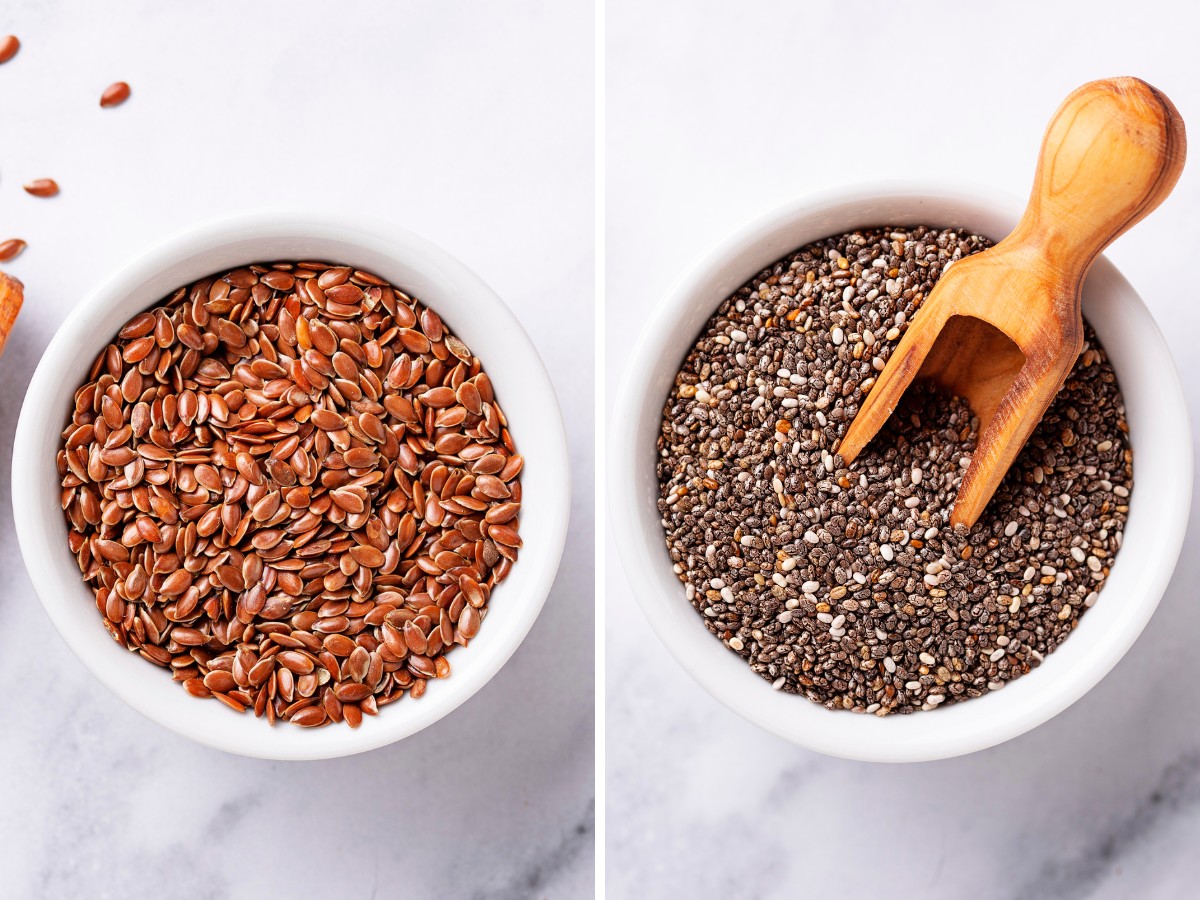Introduction
In the world of superfoods, two tiny seeds have gained significant attention for their impressive nutritional profiles and potential health benefits: flaxseed and chia seed. Both are rich in essential nutrients, healthy fats, and dietary fiber, making them popular choices for health-conscious individuals. In this article, we’ll delve into the nutritional content and health benefits of flaxseed and chia seed, exploring how they stack up against each other in promoting overall well-being.
Nutritional Powerhouses: Flaxseed
Flaxseed, also known as linseed, has been cultivated for centuries for its versatile uses and health properties. Packed with nutrients, flaxseed is an excellent source of alpha-linolenic acid (ALA), a type of omega-3 fatty acid essential for heart health. Additionally, flaxseed is rich in lignans, a type of plant compound known for its antioxidant and estrogen-like properties. These lignans may play a role in reducing the risk of certain cancers, such as breast cancer, and improving overall health.

Chia Seed: A Nutrient-Dense Superfood
Chia seeds have surged in popularity in recent years, thanks to their impressive nutrient profile and diverse culinary uses. These tiny seeds are loaded with fiber, protein, omega-3 fatty acids, and various vitamins and minerals. One of the standout features of chia seeds is their ability to absorb liquid and form a gel-like consistency, which can help promote feelings of fullness and aid in digestion. Additionally, chia seeds are a rich source of antioxidants, which can help protect the body against oxidative stress and inflammation.
Comparing Nutritional Content
When it comes to nutritional content, both flaxseed and chia seed offer impressive benefits. Flaxseed is particularly high in ALA omega-3 fatty acids, with just one tablespoon providing a significant portion of the recommended daily intake. Chia seeds, on the other hand, are slightly lower in ALA but make up for it with their higher fiber content. In terms of protein content, chia seeds have a slight edge over flaxseed, making them a popular choice among vegetarians and vegans looking to boost their protein intake.
Heart Health Benefits
Both flaxseed and chia seed have been associated with numerous heart health benefits, thanks to their high content of omega-3 fatty acids and other heart-healthy nutrients. Consuming these seeds regularly may help lower blood pressure, reduce inflammation, and improve cholesterol levels. Studies have shown that incorporating flaxseed or chia seed into the diet can lead to improvements in markers of cardiovascular health, making them valuable additions to a heart-healthy diet.
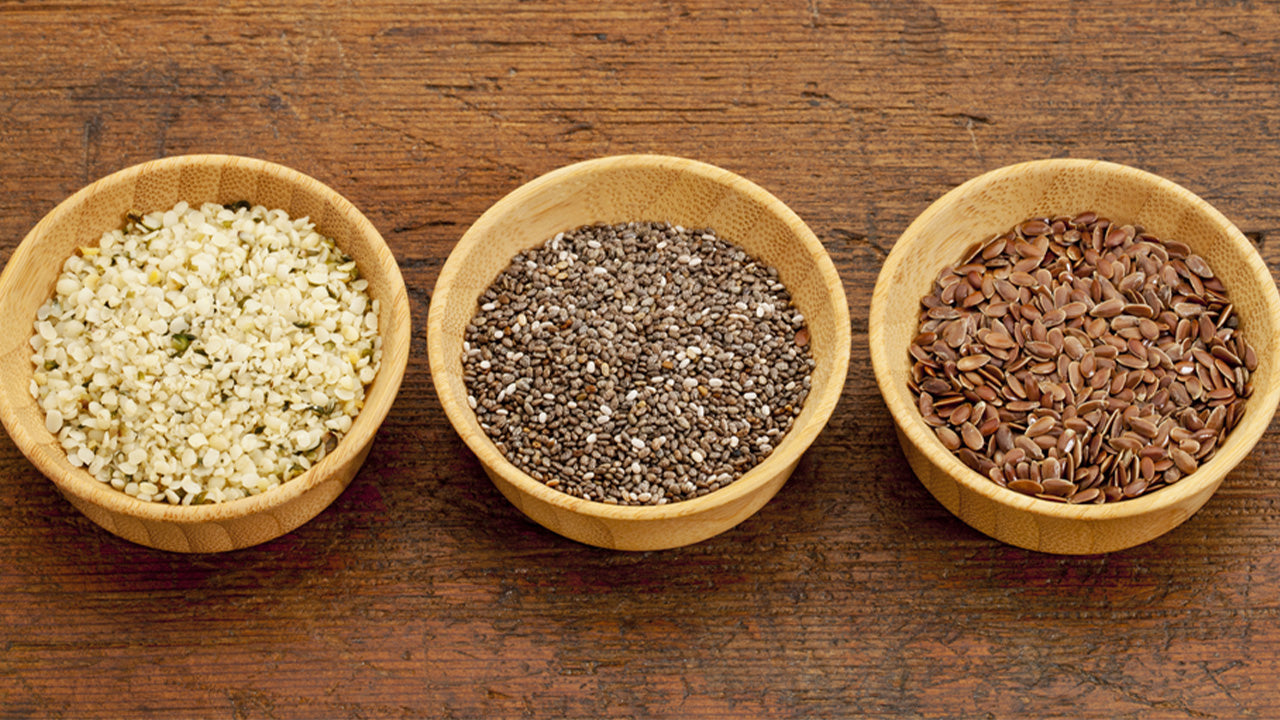
Digestive Health and Weight Management
The high fiber content of both flaxseed and chia seed makes them excellent choices for promoting digestive health and supporting weight management goals. Fiber helps regulate bowel movements, prevent constipation, and promote a feeling of fullness, which can help curb cravings and support healthy weight loss. Additionally, the gel-like consistency formed by chia seeds when mixed with liquid can help slow digestion and stabilize blood sugar levels, making them particularly beneficial for individuals with diabetes or insulin resistance.
Antioxidant and Anti-Inflammatory Properties
In addition to their impressive nutritional profiles, both flaxseed and chia seed boast powerful antioxidant and anti-inflammatory properties. Antioxidants help neutralize free radicals in the body, which can cause cellular damage and contribute to chronic diseases such as cancer and heart disease. By incorporating flaxseed or chia seed into your diet, you can help protect your cells from oxidative stress and inflammation, promoting overall health and well-being.
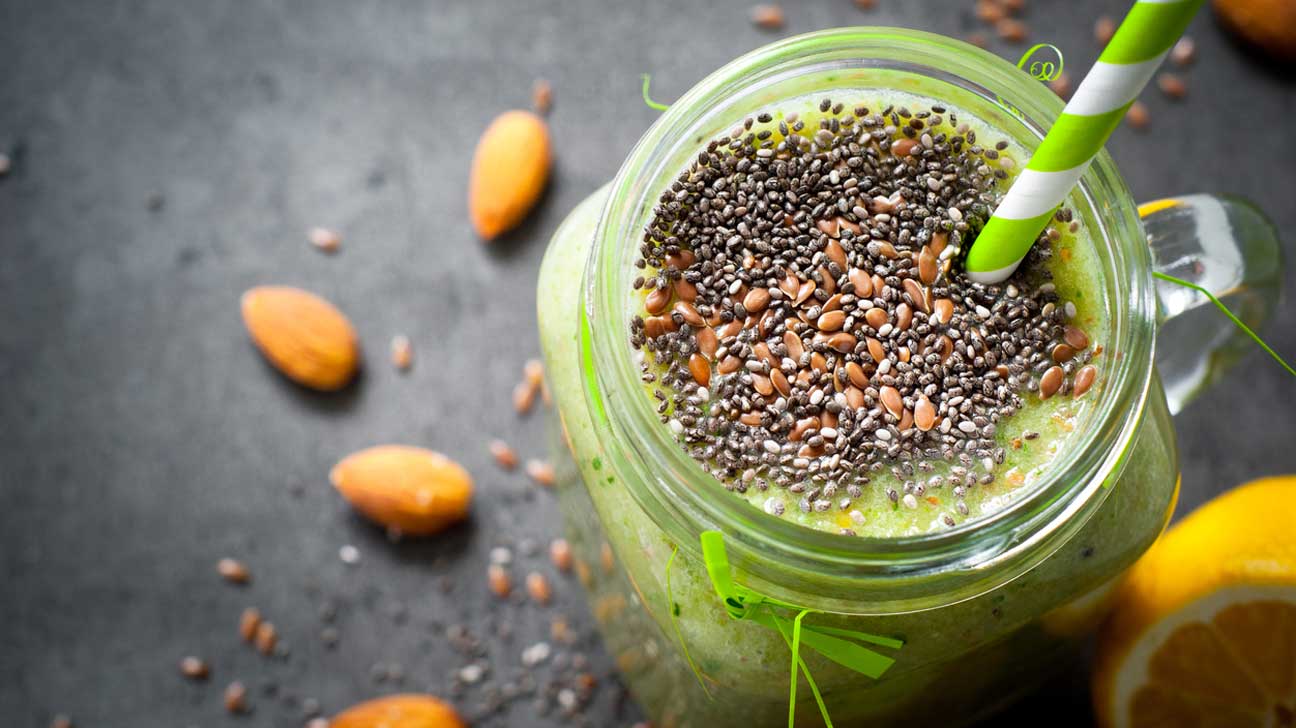
Incorporating Flaxseed and Chia Seed Into Your Diet
There are numerous ways to incorporate flaxseed and chia seed into your daily diet to reap their health benefits. You can sprinkle ground flaxseed or chia seeds onto oatmeal, yogurt, or smoothies for an added nutritional boost. They can also be used as egg substitutes in baking recipes or mixed into homemade granola bars for a convenient and healthy snack option. Additionally, chia seeds can be soaked in liquid to create a pudding-like consistency, which can be flavored with fruits, nuts, and spices for a delicious and nutritious dessert.
Potential Considerations and Precautions
While flaxseed and chia seed offer numerous health benefits, it’s essential to consider potential precautions and limitations when incorporating them into your diet.
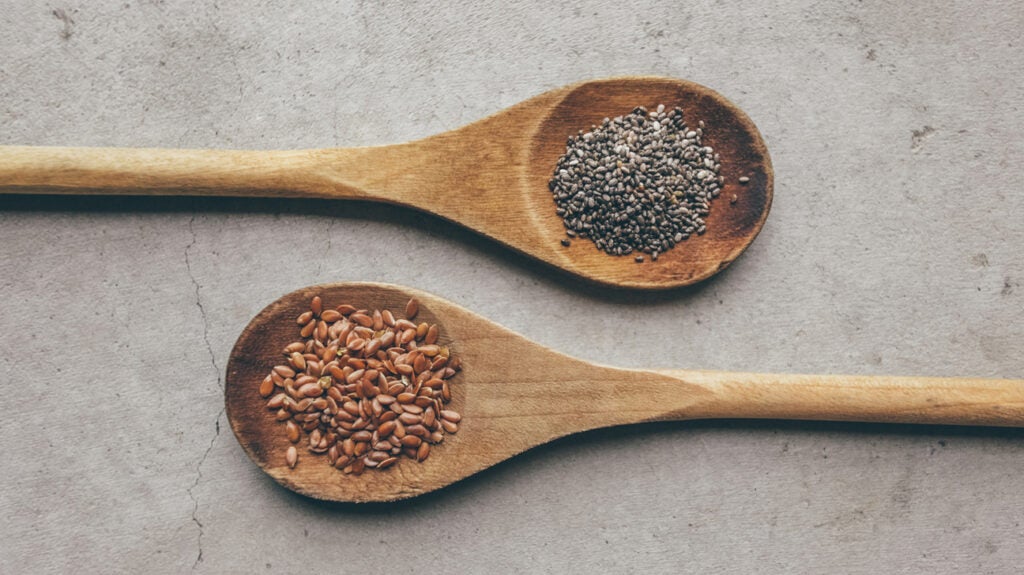
Allergic Reactions
Some individuals may experience allergic reactions to flaxseed or chia seed. Allergic symptoms can range from mild to severe and may include itching, swelling, hives, or difficulty breathing. If you have a known allergy to seeds or nuts, it’s essential to exercise caution when consuming flaxseed or chia seed and consult with a healthcare professional if you experience any adverse reactions.
Digestive Issues
The high fiber content of flaxseed and chia seed can sometimes lead to digestive issues such as bloating, gas, or diarrhea, especially if consumed in large quantities or if your body is not accustomed to high-fiber foods. To minimize digestive discomfort, start with small servings and gradually increase your intake over time. Additionally, be sure to drink plenty of water when consuming flaxseed or chia seed to help prevent constipation and promote proper digestion.
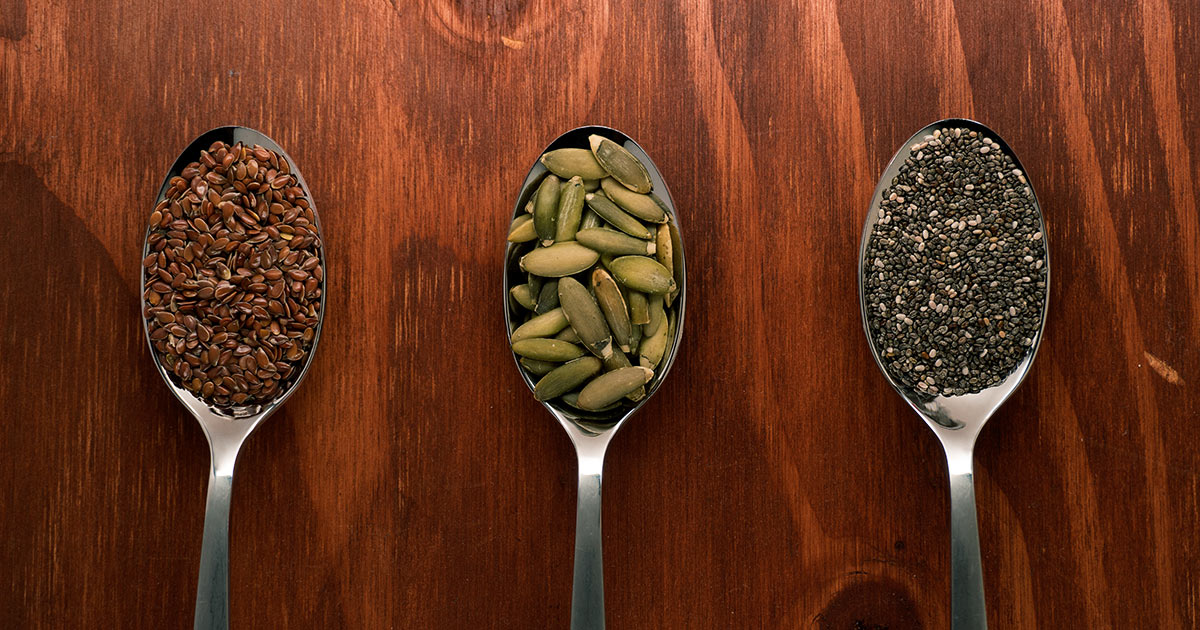
Omega-3 Fatty Acid Conversion
While both flaxseed and chia seed are rich sources of ALA omega-3 fatty acids, it’s important to note that ALA must be converted into the more active forms of omega-3s, EPA and DHA, in the body to exert their full health benefits. However, the conversion rate of ALA to EPA and DHA is relatively low, particularly in individuals with certain genetic variations or underlying health conditions. As a result, flaxseed and chia seed may not provide the same level of omega-3 benefits as sources such as fatty fish or fish oil supplements. If you’re concerned about omega-3 intake, consider incorporating a variety of omega-3-rich foods into your diet or speak with a healthcare professional about supplementation options.
Seed Storage and Rancidity
Both flaxseed and chia seed contain healthy fats that can become rancid when exposed to light, heat, or oxygen over time. To preserve their freshness and nutritional integrity, store flaxseed and chia seed in a cool, dark place in a tightly sealed container. It’s also a good idea to purchase whole seeds and grind them as needed to prevent oxidation and maintain their potency.
Conclusion
In the battle of the superfoods, flaxseed and chia seed emerge as nutritional powerhouses, each offering a unique set of health benefits. Whether you’re looking to support heart health, improve digestion, or boost overall nutrition, incorporating flaxseed and chia seed into your diet can be a simple and effective way to enhance your well-being. So why not give these tiny seeds a try and unlock their incredible health-promoting potential?
